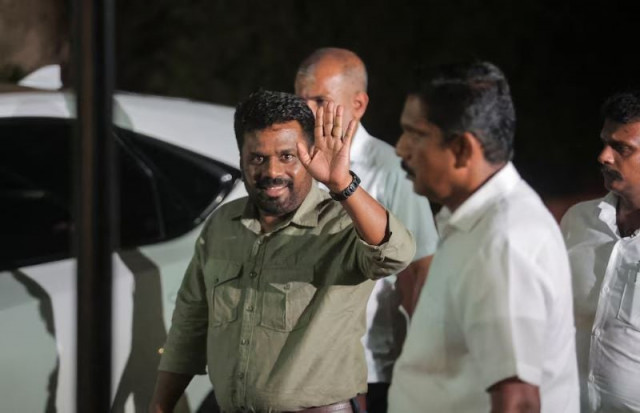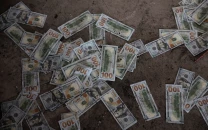WATCH: Leftist Anura Kumara Dissanayake sworn in as Sri Lanka’s president
Dissanayaka, who won 42.31% of vote, took his oath at the historic Presidential Secretariat in Colombo.

Anura Kumara Dissanayaka, the leader of the People's Liberation Front (JVP), was sworn in as Sri Lanka's first leftist president on Monday.
Dissanayaka, who won 42.31% of the vote in the recent election, took his oath at the historic Presidential Secretariat in Colombo.
His victory comes in the wake of mass protests that forced former president Gotabaya Rajapaksa to flee amid the nation’s unprecedented economic crisis.
In his inaugural address, Dissanayaka emphasized his commitment to changing the "corrupt" political culture of the island.
"I will do my best to fully restore the people's confidence in politicians," he stated, acknowledging the challenges ahead. "I am not a conjurer, I am not a magician, but I will seek the best advice and do my best. For that, I need the support of everyone."
The new president succeeds Ranil Wickremesinghe, who assumed office during the peak of the financial crisis and implemented strict austerity measures in line with an International Monetary Fund (IMF) bailout.
While Wickremesinghe's policies stabilized the economy, they also led to widespread hardship for many Sri Lankans.
Dissanayaka's administration aims to renegotiate certain terms of the IMF agreement to provide tax relief for struggling citizens.
"It is a binding document, but there is a provision to renegotiate," stated Bimal Ratnayake, a senior member of Dissanayaka's party.
Before taking office, Dissanayaka's popularity surged as he positioned himself as a champion of the people, gaining traction in a political landscape marked by disillusionment.
His party had previously led two uprisings in the 1970s and 1980s, resulting in significant loss of life, but has since renounced violence.
Attending the swearing-in ceremony were lawmakers, members of the Buddhist clergy, and military officials. Prime Minister Dinesh Gunawardena resigned just prior to the event, allowing Dissanayaka the opportunity to form his own cabinet.
Dissanayaka's rise represents a shift in Sri Lankan politics, as he embraces an open economy and acknowledges the need for reform while holding onto his Marxist roots.
The new President faces the daunting task of restoring stability and confidence in a nation still grappling with the aftermath of economic collapse.



















COMMENTS
Comments are moderated and generally will be posted if they are on-topic and not abusive.
For more information, please see our Comments FAQ